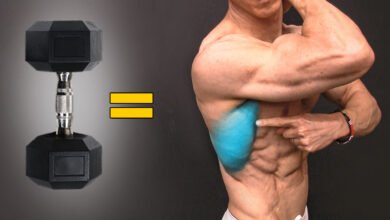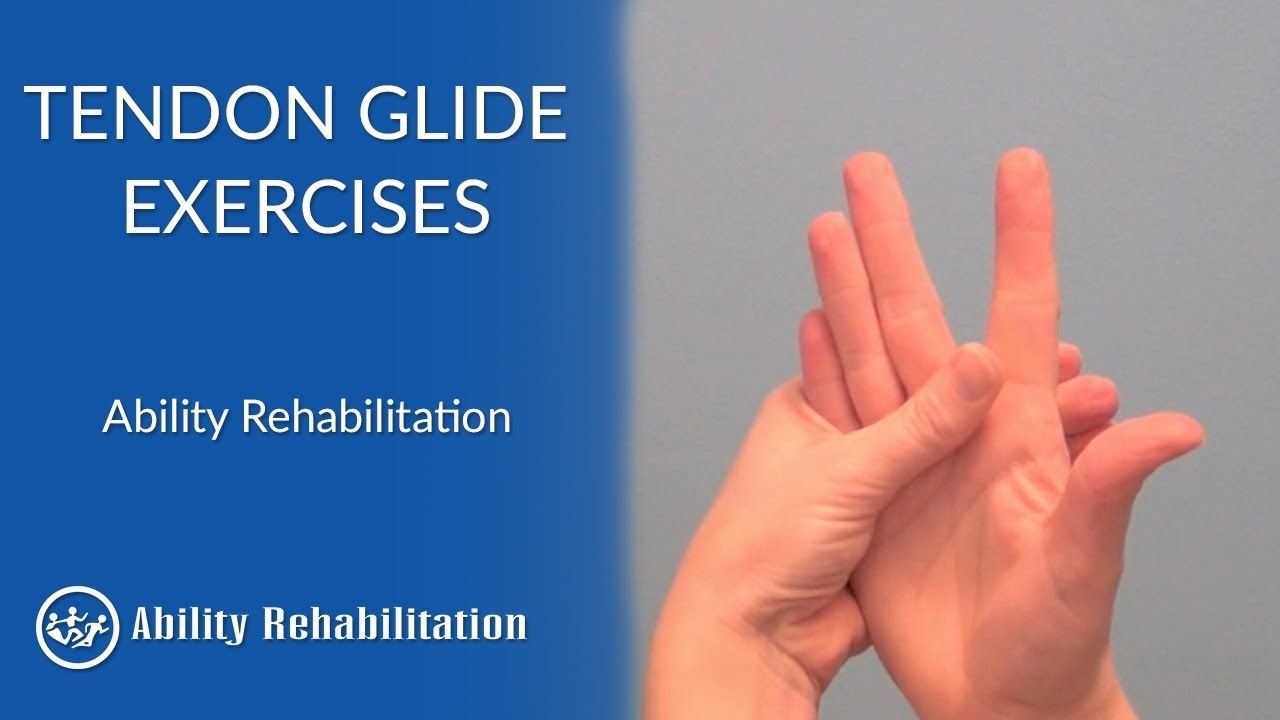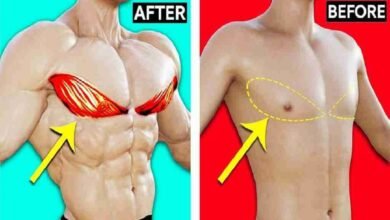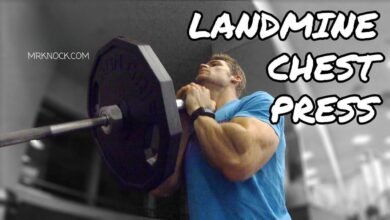Step By Step Guide To Front Lever Progression
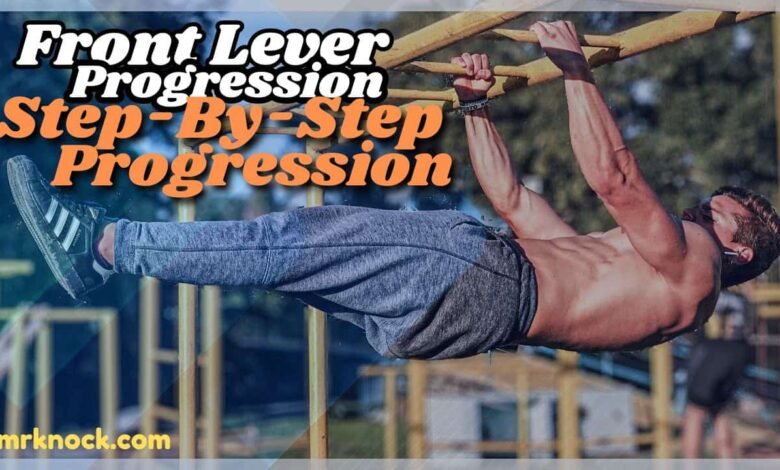
Master the Front Lever Progression: The front lever is one of the most mind-blowing and complex calisthenics moves. It’s a testimony to the top body and middle power, requiring you to hold your frame parallel to the floor while placing from a bar. In this guide, we’ll describe the steps to getting to know the front lever and ensure you have a solid plan to obtain this remarkable feat.
What is the Front Lever?
The front lever is static maintenance, where your body is best supported directly and horizontally by your palms gripping It. It’s a proper look at electricity, stability, and management.
Why Train for the Front Lever?
Training for the front lever builds exceptional core power, complements shoulder stability, and improves average frame management. It. It’s not just about showing. It’s a functional circulation that translates into higher overall performance in sporting activities.
Prerequisites for Front Lever Training
Before diving into the front lever education, ensure a stable foundation in fundamental physical games like pull-us and middle sports. A sturdy base will make the progression smoother and safer.
Getting Started
Assessing Your Current Strength Level
Before you start, assess your modern-day electricity. Can you do at least 10-15 United States of America and hold a plank for over a minute? If not, focus on constructing this foundational energy first.
Setting Realistic Goals
Set conceivable milestones. Don’t aim to master the front lever in a single day. Break down your purpose into workable stages and enjoy every small victory.
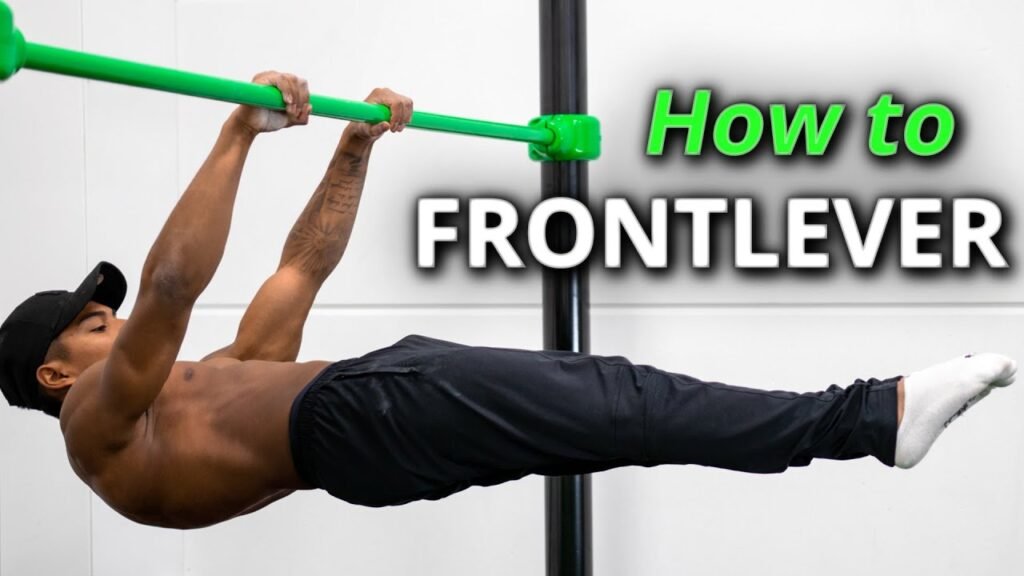
Essential Equipment
Pull-Up Bar
A robust pull-up bar is vital. Ensure it’s securely set up to address your weight competently.
Resistance Bands
Resistance bands will let you gradually build energy and assist in conserving the front lever role as you develop.
Gymnastics Rings
Rings upload an additional venture requiring more stability and manipulation. They’re exceptional for superior training.
Parallel Bars
Parallel bars provide an opportunity for the pull-up bar and can be beneficial for diverse progressions and complementary physical games.
Essential Exercises to Build Foundation Strength
Dead Hangs
Start with useless hangs to build grip strength and shoulder endurance. Dangle from the bar with your arms instantly for as long as possible.
Scapular Pull-Ups
Engage your scapula with small pull-up movements that specialize in squeezing your shoulder blades together. It facilitates the building of vital shoulder power for the front lever.
Hollow Body Holds
Lie in your lower back, carry your legs and shoulders off the ground, and preserve a hollow frame position. This exercise strengthens your middle and mimics the frame anxiety needed for the front lever.
Intermediate Progressions
Tuck Front Lever
Tuck your knees on your chest and preserve the front lever position. It reduces the lever arm, making it easier to maintain while challenging your core and upper body.
Advanced Tuck Front Lever
Extend your legs barely from the tuck function to grow the problem. Focus on maintaining an immediate lower back and engaged middle.
One-Leg Front Lever
Extend one leg even as retaining the other tucked. This uneven position challenges your balance and builds the strength of the front lever overall.
Advanced Progressions
Straddle Front Lever
Spread your legs wide aside while keeping the front lever progression. It reduces the leverage but requires sizable energy and control.
Full Front Lever
Aim to keep the front lever with your frame extended and parallel to the floor. It is the last goal and showcases your mastery of the pass.
Complementary Exercises
Let’s learn how to do:
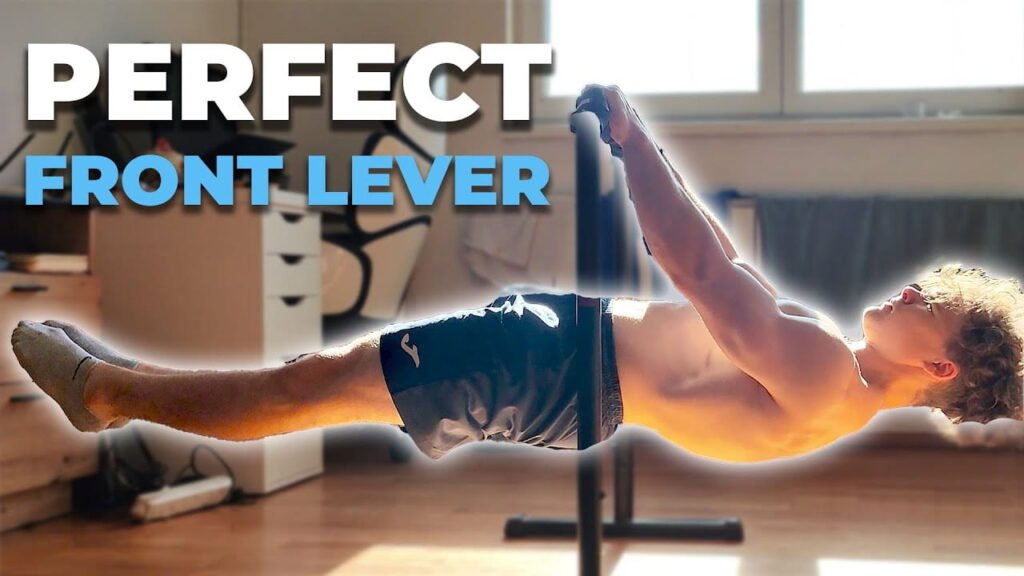
Front Lever Pull-Ups
Pull your body up while maintaining the front lever position. This dynamic movement builds extra strength and control.
Front Lever Rows
Perform rows even as in a front lever role to target your muscle tissues again and improve universal stability.
Negative Front Levers
Slowly decrease your frame from the front lever function. This eccentric movement enables the construction of vital energy for the keep.
Common Mistakes and How to Avoid Them
Poor Body Alignment
Ensure your frame is straight from head to toe. Any sagging or arching can prevent your development and place pointless strain on your body.
Lack of Core Engagement
Your center must always be fully engaged. A robust middle makes maintaining the front lever progression much more accessible.
Rushing Through Progressions
Take some time with each development. Rushing can result in negative shape and capability injuries. Master every degree before moving on to the subsequent.
Flexibility and Mobility Work
Shoulder Flexibility Exercises
Incorporate shoulder stretches to enhance your variety of movement and reduce the threat of harm.
Hip Flexor Stretches
Flexible hip flexors can help achieve the proper frame alignment for the front lever.
Spinal Mobility Drills
At some stage, a cell spine lets in for better body management and alignment in the front lever.
Recovery and Rest
Importance of Rest Days
Ensure you have relaxation days in your schooling plan to prevent previous training.
Active Recovery Techniques
Use mild activities like strolling or yoga on rest days to promote blood go-with-the-flow and resource healing.
Nutrition for Recovery
Fuel your body with a balanced protein, healthy fat, and carbohydrate diet. Proper nutrition supports muscle repair and increase.
Creating a Front Lever Training Plan
Weekly Training Schedule
Create a balanced education agenda that consists of front lever progression exercises, complementary physical activities, flexibility work, and relaxation days.
Tracking Progress
Keep a schooling journal to tune your development. Note the period and quality of your holds and any upgrades in complementary physical activities.
Staying Motivated
Setting Milestones
Set small, conceivable milestones to keep yourself encouraged. Celebrate every fulfillment to maintain enthusiasm.
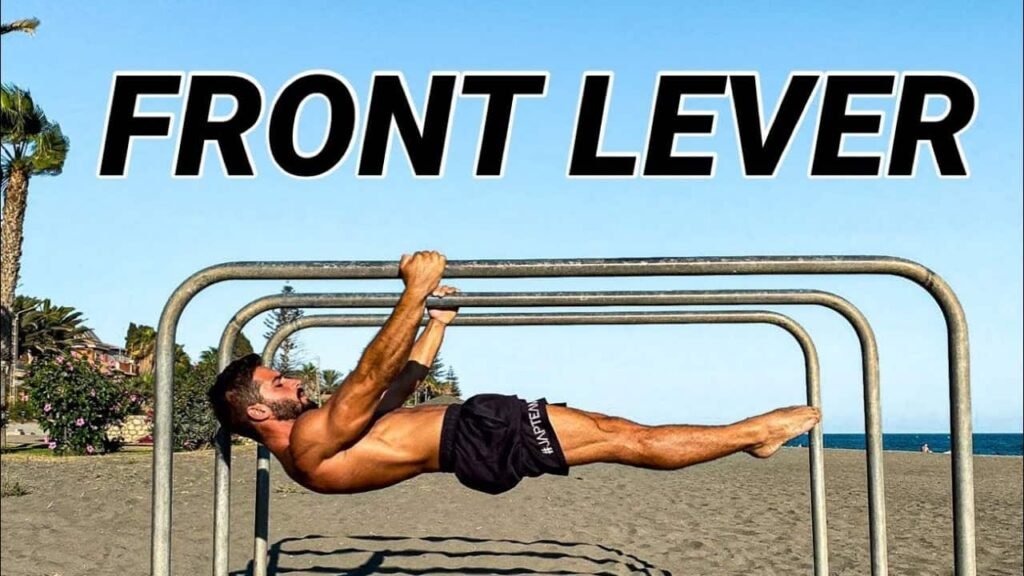
Finding a Training Partner
A training associate can offer aid, motivation, and a sense of responsibility.
Joining Calisthenics Communities
Engage with online or local calisthenics communities for lovers’ covers tips and thoughts for safety Tips.
Proper Warm-Up Routines
Always warm up before training to assemble your muscle tissues and joints for the exercise beforehand.
Listening to Your Body
Pay attention to any signs of ache or discomfort. It’s vital to differentiate between muscle fatigue and potential injury.
When to Seek Professional Guidance
If you’re scouring with progress or experiencing persistent pain, remember to seek advice from a professional teacher.
Conclusion: Front Lever Progression
Mastering the front lever is a challenging but rewarding journey. It calls for willpower, persistence, and a nicely structured schooling plan. Remember to develop at your tempo, recognize the shape, and experience the manner. With patience, you’ll watch calisthenics circulate.


